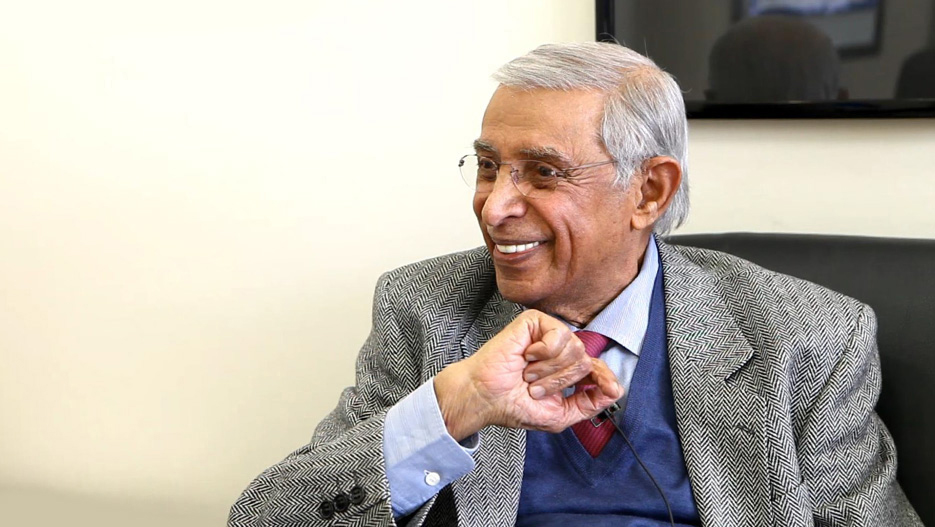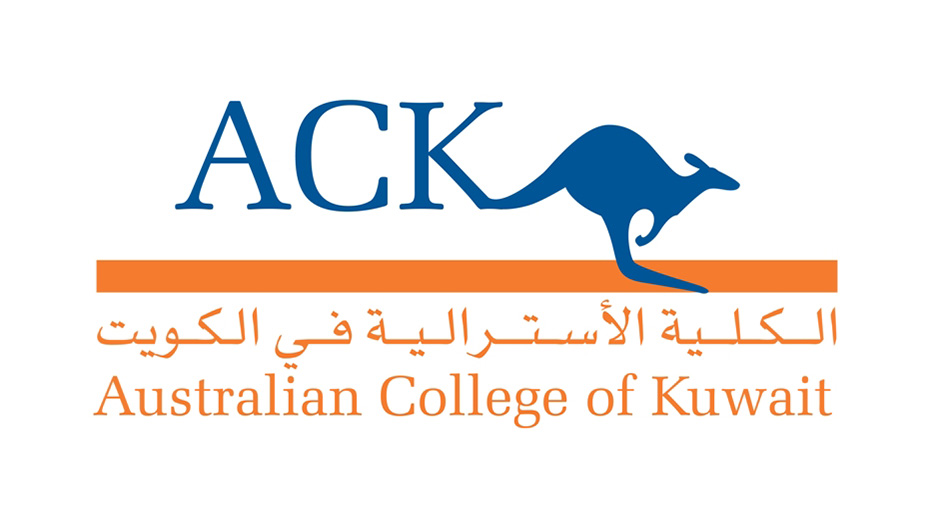Experiential Learning at Australian College of Kuwait (ACK), the Pioneers of Education in Kuwait
“Education at ACK aims to enhance the potential of employability of our graduates; be it self-employment or otherwise. We invite companies to review and comment on our curriculum, so as to tell us what they want in terms of attributes and values from our graduates.”
Interview with Abdullah Al Sharhan, Chairman of Australian College of Kuwait (ACK)

What are the trends in vocational education and how is ACK shaping the development? What values do you bring?
I myself believe that the future is for people who have knowledge, skills, and the right attitude toward the workplace. If ACK can produce this kind of individual we will be helping not only the young people who are coming to the college, but the country as well. Education at ACK aims to enhance the potential of employability of our graduates; be it self-employment or otherwise. We invite companies to review and comment on our curriculum, so as to tell us what they want in terms of attributes and values from our graduates. Beyond this, ACK has an Industry Advisory Board that provides guidance with respect to long-term strategic trends.
To produce competent engineers and business personnel, ACK stresses competency learning that enables students to apply what they learn. It is called experiential learning. Competency is what the industry wants.
About 5 years ago I created our corporate training department. Today you have to be an avid learner; which means lifelong learning. That comes only if you are being trained all the time so that you can deal with the challenges of new technologies in industry and in business. New machines are changing the face of manufacturing. In business, if you don’t know how to manage computerised data then you are not a manager. We want to prepare, young people for the challenges of the future, not of yesterday. That is why ACK is different from other universities. We constantly seek feedback from industry, so that we know what they want in our graduates. I think today’s education should highlight innovation. All employers want people who can innovate.
The first thing is to produce as many professional engineers and businessmen as we can. The market is hungry for them.
We have an agreement with Engineers Australia (E.A.) to accredit ACK courses. E.A. accredits all university engineering programs in Australia. We make sure that every year we are audited. I want to know that we are doing the right thing because ACK students are so important to me and to the country. They are going to be the pioneers that lead the industry in this country.
You are pioneers of innovation.
We now have three centres in the college that encourage and support innovation. The first is the Project Based Learning (PBL) Centre. Its goal is to propagate learning through projects namely, experiential learning. The workshop is the starting point. It is there that the students learn how to measure, and to cut accurately, and how to put components together to create a project. Our students cannot graduate without having done a project that is approved by a committee of their instructors. They have to know what to do. Our teachers are being trained to be facilitators. In the end I want teachers to be mentors and that is why we strive toward a culture of care. Once a student recognises that his instructor is a mentor he listens to him because he knows that the instructor cares. A mentor does not treat a student as a number but as a client. At the end of the day all of us are making our living from the students. That is why at ACK we offer a student centred education.
The second is the Research Centre. The focus at this centre is on applied research. Part of our research is done jointly with ACK partners particularly our partner in Australia, Central Queensland University (CQU).

What is the third centre?
The third centre is the Innovation and Entrepreneurship Centre of Excellence, dedicated to encouraging entrepreneurship. In project based learning, students create projects and are encouraged to become innovative. This trait will serve them well whether they go on to be employed by others, or to create their own businesses. By adopting a student centred culture, ACK is helping its graduates to find themselves. This is an important part of our culture.
What other institutions are you working with for example to develop some specific projects?
Our main partner is the Central Queensland University in Australia. It provides ACK with programs in mechanical and civil engineering as well as business. Our other partner is Cape Breton University in Canada that provides ACK with petroleum programs in addition to electronics and control. ACK also collaborates with Aalborg University in Denmark, which is a leader in Project Based Learning. We send our faculty to be trained by them as well as hosting workshops conducted by their instructors.
What about inside Kuwait?
ACK has signed a memorandum of understanding (MOU) with Kuwait Oil Company (KOC) to enable our students to gain field experience. Another MOU was signed with The Kuwait Institute of Scientific Research (KISR) to conduct joint research in various aspects of the petroleum industry and the environment. Another MOU was signed with the Arab Planning Institute (API) to collaborate in supporting entrepreneurship.
Where funding research and convening specialised seminars are concerned, ACK enjoys the support of The Kuwait Foundation for the Advancement of Sciences (KFAS). They have been collaborating with us for a long time.
Recently ACK received two awards for its Smoking Awareness Initiative, can you tell us something about this activity?
We started the initiative as a community service. Our students go to elementary schools (kindergarten and first grade) where they present their message in the form of pantomime and games to the children. Our students carry out simple experiments, and make videos that have an immediate impact on the children watching. Our students are very innovative. In addition, ACK engineering students made models to show how smoking affects the body and the environment. The granting of awards is an ongoing annual event. We know that young children are going to be affected if their parents smoke; hence the importance of programs delivered at schools.
ACK also convenes health days twice a year. These incorporate Smoking Awareness into their activities. These programs are encouraged by the Kuwait Oil Company (KOC) and the Kuwait National Petroleum Company (KNPC) who give out prizes and sponsor the programs. Luckily ACK has been recognised as being effective.
In Kuwait what differentiates you from the other institutions also doing applied studies?
There are several colleges that grant diplomas in Kuwait; I think there are three or four already. Some of them are specialised in information technology (IT) and technologies that are computer based. So far ACK is the only private tertiary learning institution that is producing professional engineers and professional business people. ACK started last year offering as an option internship with companies. In coming years we intend to make this compulsory. To accomplish this, we are counting on our Industry Advisory Body as well as our alumni to assist. We would like our students to see where ACK alumni have gone on to work and we want to make sure that they know what industry is all about, and what an actual “working day” entails.
ACK also makes a point of requesting companies to report on how our students do as interns.
What is your view on technology?
Technology is the driver of the future. Students have to be introduced to the latest machines. That is why we have Computer Numerical Control (CNC) machines that enable students to learn to implement their projects.
Students have to design the parts of their project and feed the software to 3D printers or the CNC machines. This is the technology of the future. When graduates go out into the world they will not find the machines of yesterday.
What is your perspective for the medium term? What would you like to achieve in the next two or three years?
The first thing is to produce as many professional engineers and businessmen as we can. The market is hungry for them. Currently Kuwait is dependent on non-Kuwaitis but we want Kuwaitis to slowly take over the professional work that sustains the country. Secondly we would like to be able to produce applied research that can help industry solve their problems. I hope that in three or four years we will have industries coming to ACK to ask for help. Also, for the development of what ACK offers we need research that indicates what is coming. Our curriculum should evolve to enable our students to keep abreast of what is going on in the world. Research is very important. We are now preparing the entrepreneurship centre so that it can help ambitious students who want to create a business for themselves. We want to offer all the help they need; financial, technical, and business management-wise.
The Kuwaiti government has established a two billion Kuwaiti dinar fund (approximately 6.5 billion USD) for small and medium industries. ACK will instruct its students in the means to access this fund. Then they should learn how to sustain their own business. ACK will act as an incubator for them. All of our instructors will be at their disposal. Our corporate training will help them by providing courses that they may need to grow their specific projects.
FAIR USE POLICY
This material (including media content) may not be published, broadcasted, rewritten, or redistributed. However, linking directly to the page (including the source, i.e. Marcopolis.net) is permitted and encouraged.